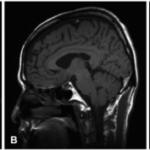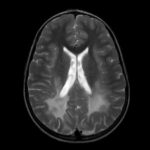Metastasis related adrenocortical insufficiency is the clinical manifestation of absence or deficiency in the production of glucocorticoids due to metastasis.
What is the Pathology of Metastasis Related Adrenocortical Insufficiency?
The pathology of metastasis related adrenocortical insufficiency is:
-Etiology: The cause of metastasis related adrenocortical insufficiency are tumors, tuberculosis, other types of infections, and autoimmunity.
-Pathogenesis: The sequence of events that lead to metastasis related adrenocortical insufficiency is that it occurs most often when patients have an autoimmune disease that causes the body to attack the glands.
How does Metastasis Related Adrenocortical Insufficiency Present?
Patients with metastasis related adrenocortical insufficiency are either male or female, and present at all age groups. The symptoms, features, and clinical findings associated with infection related adrenocortical insufficiency include several cardinal symptoms such as anorexia, orthostatic hypotension, salt craving, weakness, fatigue, and hyperpigmentation of the skin.
How is Metastasis Related Adrenocortical Insufficiency Diagnosed?
Metastasis related adrenocortical insufficiency is diagnosed by a blood sample to check the hormone and mineral levels.
How is Metastasis Related Adrenocortical Insufficiency Treated?
Metastasis related adrenocortical insufficiency is treated with hormone replacement therapy. Hydrocortisone and fludrocortisone are two potential treatment options depending on the defects.
What is the Prognosis of Metastasis Related Adrenocortical Insufficiency?
The prognosis of metastasis related adrenocortical insufficiency is good.



